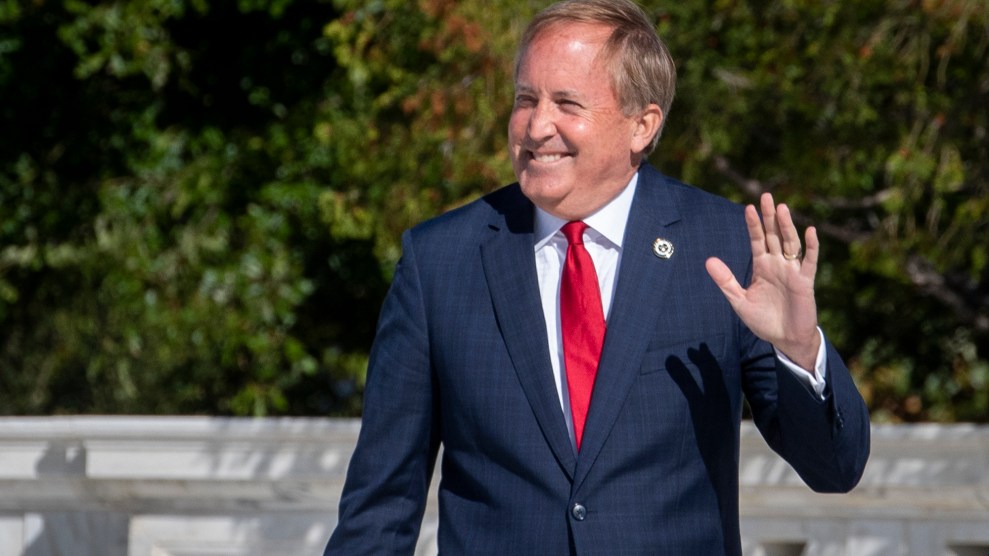
Jacquelyn Martin/AP
On Thursday, a Texas house panel voted to recommend impeachment proceedings for Republican Attorney General Ken Paxton. Investigators for the committee concluded that the state’s top law enforcement official broke a number of laws—including felony statutes—by using his office to help a friend and political donor named Nate Paul. (You can read more about the scandal, and the committee’s investigation, here.)
Paxton, you may be surprised to learn, is not taking this well. In a statement after the committee’s announcement, Paxton, who was reelected last fall, accused his fellow Republicans of carrying water for liberal Democrats and claimed that the committee was trying “to use their unsubstantiated report to overturn the results of a free and fair election.” It was an “illegitimate attempt to overthrow the will of the people and disenfranchise the voters of our state.”
As the Texas Observer’s Justin Miller noted, Paxton and his team are floating a legal argument that holds that a public official can’t be impeached after an election for actions that were widely established before that election. This idea that all the facts were known, though, would seem to be undercut rather severely by Paxton’s continued insistence that the facts we think we know are wrong, as well as the fact that he was literally trying to get the state legislature to pay the whistleblowers he fired $3.3 million to settle their claims, rather than face a public trial—which is what prompted the legislature’s investigation. It wasn’t as if his reelection slogan was “Yes, I did it.”
But more importantly, this is Ken Paxton we’re talking about. You know, the guy who famously tried to overturn an election.
After the 2020 presidential election, as Donald Trump and his team were scrambling to come up with a way to reverse his loss, Paxton stepped forward. As I recounted in a profile of Paxton last year, his office asked the Supreme Court to throw out the election results in four states that Joe Biden won, claiming, among other things, that “the statistical improbability of Mr. Biden winning the popular vote in these four States collectively is 1 in 1,000,000,000,000,000.” The brief was a disaster, recycling claims that had already been rejected. Even fellow Republican-run AG offices wanted to keep their distance. In internal emails obtained through a records request by the group American Oversight, staffers in the Florida attorney general’s office called Paxton’s brief “batshit” and wondered if “this is Paxton’s request for a pardon.”
You know this, of course, because you know where it led. The Supreme Court declined to hear his case, but Paxton traveled to Washington, DC, anyway that winter, where he was one of the Republican officeholders who addressed Trump supporters before they stormed the Capitol on January 6th.
Now the power is in the hands of the lower chamber of the legislature, which has until Monday to hold a vote on impeachment, before the regular session ends. Paxton can complain all he wants about efforts to “overthrow the will of the people and disenfranchise the voters.” But the people considering his fate were elected, too.
















